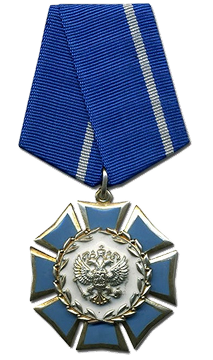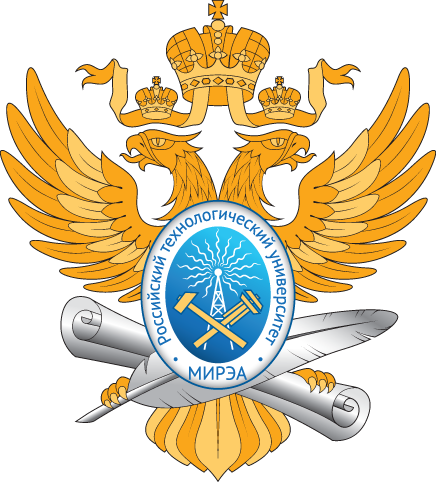09.03.03 Applied informatics
This educational area focuses on training professionals in the following fields: systems analysis of applied informatization tasks; formalized solutions to applied information system problems and processes; development of projects to automate and informatize applied processes or to create information systems in applied areas; creation, modification, implementation, maintenance and project management of information systems.
Students explore applied and information processes, information systems and technologies requiring practical analysis, modeling, reengineering, design, development and maintenance skills. Special attention is given to modeling and designing business processes and data warehouses.
Students explore applied and information processes, information systems and technologies requiring practical analysis, modeling, reengineering, design, development and maintenance skills. Special attention is given to modeling and designing business processes and data warehouses.
Level of education:
Bachelor's degree
Form of training:
Full-time (daytime)
Venue of training:
Moscow
Entrance exams:
— Mathematics (major)
— Russian language
— Information science and ICT
— Russian language
— Information science and ICT
Programs, specializations:
Informatization of organizations

Students receive theoretical instruction and practical training in the field of data processing technologies, design, development and operation of information systems and data warehouses which support the operations and business processes of government agencies as well as manufacturing and non-manufacturing enterprises.
The laboratories are equipped with state-of-the-art computer, network, multimedia and office equipment in support of studies, independent training, and scheduled or one-off research projects and developments. Special attention is paid to studying the best domestic and foreign practices based on Russian and international standards of modeling, designing and developing business processes, data warehouses, information system architecture and software.
Upon completing the Informatization of Organizations program, a student becomes an analyst, developer, designer, organizer and manager of information technologies and systems.
The laboratories are equipped with state-of-the-art computer, network, multimedia and office equipment in support of studies, independent training, and scheduled or one-off research projects and developments. Special attention is paid to studying the best domestic and foreign practices based on Russian and international standards of modeling, designing and developing business processes, data warehouses, information system architecture and software.
Upon completing the Informatization of Organizations program, a student becomes an analyst, developer, designer, organizer and manager of information technologies and systems.
Alumni can be employed as
- software engineer/developer
- IT project analyst
- information system designer
- database designer
- IT system implementation specialist
- IT system support and operation specialist
- IT project manager (with a work record)
- product owner (with a work record)
Program subjects
- Object-oriented information systems
- Organization architecture
- Subject-oriented modeling
- Development of configurations in a 1c: Enterprise environment
- Information technology services and content management
- Data analysis methods
- Business process re-engineering
- Design of object-oriented information systems
- Development of supporting subsystems
- Information management
- Information technology infrastructure
- Forecast and analysis systems
- Business process controlling techniques
Practical and Applied Informatics Department
Data management

Students receive theoretical instruction and practical training in the field of formation, processing, storage, search and analysis of data for designing, developing and operating information systems which support the operations and business processes of government agencies as well as manufacturing and non-manufacturing enterprises.
The laboratories are equipped with state-of-the-art computer, network, multimedia and office equipment in support of studies, independent training, and scheduled or one-off research projects and developments. Special attention is paid to studying the best domestic and foreign practices based on Russian and international standards of data warehouse design and development, as well as big data analysis methods, application of predictive and analytical systems and data management systems.
Graduates of the Data Management program are specialists in processing, analyzing and storing big data bodies of the kind that are accumulated and used in the operation of enterprises and other entities.
The laboratories are equipped with state-of-the-art computer, network, multimedia and office equipment in support of studies, independent training, and scheduled or one-off research projects and developments. Special attention is paid to studying the best domestic and foreign practices based on Russian and international standards of data warehouse design and development, as well as big data analysis methods, application of predictive and analytical systems and data management systems.
Graduates of the Data Management program are specialists in processing, analyzing and storing big data bodies of the kind that are accumulated and used in the operation of enterprises and other entities.
Alumni can be employed as
- software engineer/developer
- data engineer
- data analyst
- data storage designer
- systems analyst
- product owner (with a record of work)
Program subjects
- Object-oriented information systems
- Programming languages for statistical data processing
- Data analysis methods
- Data management systems
- Design of data management systems
- System simulation software
- Prediction and analysis systems
- Mathematical support for data management systems
- Models and methods of predictive analytics
- Statistical data organization, processing and storage techniques
- Applied aspects of mathematical statistics
- Machine learning technologies and tools
- Mathematical simulation of applied tasks
Applied Mathematics Department
- Educational Activity
-
Institutes
- Institute of Information Technologies
-
Institute of Artificial Intelligence
- About the Institute
- Institute Administration
- History of the Institute
-
Training programs
- Bachelor's Degree Programs
-
Master's Degree Programs
- 01.04.02 Applied mathematics and information science
- 09.04.01. Informatics and computer engineering
- 12.04.04 Biotechnical systems and technologies
- 15.04.04 Automation of technological processes and production
- 15.04.06 Mechatronics and robotics
- 27.04.03 System analysis and management
- 27.04.04 Engineering system control
- Infrastructure
- Alumni
- Contacts
- Institute for Cybersecurity and Digital Technologies
-
Institute for Advanced Technologies and Industrial Programming
- About the Institute
- Institute Administration
- History of the Institute
-
Training programs
-
Bachelor's Degree Programs
- 09.03.02 Information systems and technologies
- 11.03.04 Electronics and nanoelectronics
- 12.03.05 Laser technology and laser techniques
- 15.03.01 Mechanical engineering
- 22.03.01 Materials science and technology
- 27.03.01 Standardization and metrology
- 28.03.01 Nanotechnology and microsystems engineering
- 29.03.04 Decorative material working techniques
- 54.03.01 Graphic design
-
Master's Degree Programs
- 09.04.02. Information systems and technologies
- 11.04.04 Electronics and nanoelectronics
- 12.04.02 Optical engineering
- 15.04.01 Mechanical engineering
- 22.04.01 Materials science and technology
- 27.04.01 Standardization and metrology
- 29.04.04 Decorative material working techniques
- 54.04.01 Graphic design
-
Bachelor's Degree Programs
- Infrastructure
- Alumni
- Contacts
- Institute of Radio Electronics and Informatics
- Institute of Management Technologies
- Lomonosov Institute of Fine Chemical Technologies
- Institute of International Education
-
Mega-Laboratories
- Motion Capture Laboratory
- Immersive Technologies Laboratory
- Laboratory for the Development and Transfer of Microfluidic Technologies (DTMT)
- Cell Technologies Megalaboratory operating on the basis of the Department of Chemistry and Technology of Biologically Active Compounds, Medical and Organic Chemistry named after N.A. Preobrazhensky
- General Biotechnology Megalaboratory
- Industry 4.0: Digital Robotized Production center
- Laboratory of Intelligent Autonomous and Multi-Agent Robotic Systems
- Research and Educational Center for Biosynthesis, Isolation and Purification of Monoclonal Antibodies (Generium)
- Rare and Precious Metals Research and Technological Center operating on the basis of the Department of Chemistry and Technology of Rare Elements named after K.A. Bolshakov
- Laboratory of Analytic, Modeling, Design and Digital Prototyping Technologies
- Import Substitution of Information Technologies Educational and scientific testing complex
- Smart Production Systems Educational and Scientific Center
- Elastomers. Thermoplastics. Technologies Educational and Research Center operating on the basis of the Department of Chemistry and Technology of Elastomer Processing named after F.F. Koshelev
- Catalytic and Mass Exchange Processes center
- Center of Innovative Technologies in Microelectronics
- Center for Cybersports Robotics
- Mobile Robotics University Laboratory
- Radio electronic Technologies Megalaboratory
- Departmental Situation Center of the Ministry of Science and Higher Education of the Russian Federation for monitoring the sphere of education and science
- Scientific and Educational Center for Medical Radiology and Dosimetry
- Laboratory of Geographic Information Systems and Technologies
- Educational and Research Center for Space Monitoring ("CosMoCenter")
- Additive Polymer Technologies Center
- Cyber Threat Research Megalaboratory
- Digital Center of Rosatom State Corporation
- Laser Technologies Megalaboratory
- Mathematical Modeling and Artificial Intelligence Megalaboratory
- Megalaboratory of Digital and Additive Technologies in Mechanical Engineering
- Nanomaterials and Nanostructures Diagnostics Center
- Techno-coworking
- TESLA Educational and Research Center
- Bachelor's Degree Programs
- Master's Degree Programs
- Additional Education Programs
- Physical Education and Sports
© 2026 MIREA - Russian Technological University




